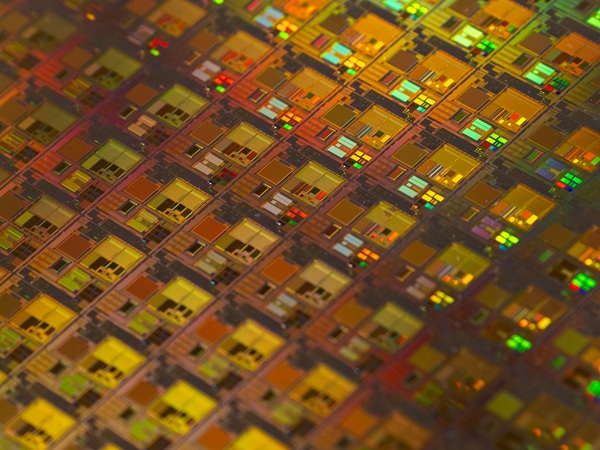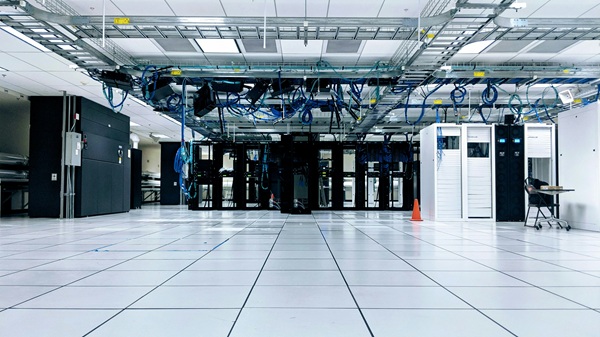1. Amazon’s $10 billion North Carolina data centre
In a landmark move that underscores the growing demand for artificial intelligence and cloud computing capabilities, Amazon has announced a $10 billion investment in North Carolina to expand its data center infrastructure and establish a new AI innovation hub.
The investment, one of the largest in the state’s history, will be centered in Richmond County and is expected to create at least 500 high-skilled jobs. These roles will span data center engineering, network operations, security, and AI infrastructure management, with thousands more jobs supported indirectly through construction and the broader AWS supply chain.
Amazon Web Services (AWS), the cloud computing arm of Amazon, will lead the initiative. The expansion is designed to meet the surging demand for generative AI and advanced cloud services across industries such as healthcare, finance, manufacturing, and the public sector.
“Artificial intelligence is changing the way we work and innovate,” said North Carolina Governor Josh Stein. “Amazon’s investment will ensure our state remains at the forefront of technological advancement while bringing hundreds of good-paying jobs to our communities.”
Beyond infrastructure, Amazon is also investing in local communities. The company will launch the Amazon Richmond County Community Fund, starting with a $150,000 commitment to support grants for STEM education, sustainability, workforce development, and community well-being. Additionally, Amazon plans to introduce training programs such as data center technician certifications and fiber optic fusion splicing workshops, aimed at upskilling local talent and preparing students for careers in tech.
David Zapolsky, Amazon’s Chief Global Affairs and Legal Officer, emphasised the strategic importance of the investment:
“This initiative not only strengthens our cloud and AI capabilities but also reinforces our commitment to innovation and community development in North Carolina.”
With this move, Amazon continues its long-standing relationship with the state. Since 2010, the company has invested over $12 billion in North Carolina, contributing more than $13 billion to the state’s GDP and supporting tens of thousands of jobs.
As the race to dominate AI infrastructure accelerates, Amazon’s bold investment signals its intent to remain a leader in the cloud and AI space—while helping transform a rural region into a high-tech powerhouse.
2. GlobalFoundries $16B expansion

Maxence Pira via Unsplash
GlobalFoundries, one of the world’s leading semiconductor manufacturers, has announced a significant expansion of its investment strategy, raising its total commitment to $16 billion. This move underscores the company’s ambition to strengthen U.S.-based chip manufacturing and accelerate innovation in emerging technologies, particularly those powering the artificial intelligence revolution.
The Malta, New York-based company revealed that the increased funding includes an additional $1 billion in capital spending and $3 billion dedicated to research and development. These funds will support factory expansions in New York and Vermont, as well as cutting-edge research in three key areas: advanced chip packaging, silicon photonics, and gallium nitride technologies.
Strategic Focus on AI and Power Efficiency
GlobalFoundries’ investment is a direct response to the surging demand for semiconductors optimised for AI workloads, which require high bandwidth and energy efficiency. The company is positioning itself as a critical player in enabling next-generation data centers, AI-enabled devices, and communications infrastructure.
CEO Tim Breen emphasised the importance of aligning production with market demand:
We see a very strong demand, but it takes time to convert that into specific ramps and project timing. What you don’t want to do is shoot too far ahead or fall too far behind,” he told Reuters.
Research Priorities
The $3 billion R&D initiative will focus on:
– Chip Packaging Technologies: Enhancing performance and integration through 3D heterogeneous integration.
– Silicon Photonics: A promising field for quantum computing and high-speed data transmission.
– Gallium Nitride (GaN): A material known for its superior power efficiency, especially in electric vehicles and AI servers.
National and Industry Support
The expansion is backed by the Trump administration and supported by major tech companies including Apple, AMD, Qualcomm, and SpaceX. These partnerships aim to bolster domestic semiconductor production and reduce reliance on overseas supply chains.
U.S. Secretary of Commerce Howard Lutnick praised the initiative, calling it “a great example of the return of United States manufacturing for critical semiconductors.”
3. Indian PM’s first Croatia visit

Indian Prime Minister Narendra Modi concluded his first official visit to Croatia, marking a historic moment in bilateral relations between the two nations. This visit, the first ever by an Indian Prime Minister to Croatia, has laid the foundation for a new era of cooperation in trade, culture, defense, and technology.
During his stay in Zagreb, PM Modi met with Croatian Prime Minister Andrej Plenković, where both leaders reaffirmed their commitment to deepening ties based on shared democratic values, pluralism, and mutual respect. The visit resulted in the signing of four key Memorandums of Understanding covering agriculture, scientific research, cultural exchange, and linguistic cooperation.
Strengthening Economic and Strategic Ties
The two leaders unveiled a comprehensive roadmap to enhance bilateral trade and investment. Key sectors identified for collaboration include pharmaceuticals, agriculture, information technology, clean and digital technologies, renewable energy, and semiconductors. Croatian firms were also invited to participate in India’s ambitious infrastructure projects, such as the Sagarmala port modernisation initiative.
A Defence Cooperation Plan was also announced, focusing on military training, defense industry collaboration, and strategic exchanges. This move is expected to bolster regional security and open new avenues for defense manufacturing partnerships.
Cultural Diplomacy and People-to-People Links
Cultural ties were a central theme of the visit. PM Modi highlighted the centuries-old connection between India and Croatia, referencing the 18th-century Croatian scholar Ivan Filip Vezdin, who was the first European to publish a Sanskrit grammar. The MoU for the Hindi Chair at the University of Zagreb was extended until 2030, and a new five-year Cultural Exchange Programme was launched.
The leaders also emphasised the growing popularity of Indian culture, including Yoga and Bollywood, in Croatia. PM Modi extended his best wishes for the upcoming International Yoga Day celebrations in Zagreb, underscoring the role of cultural diplomacy in bringing people closer.
Global and Regional Cooperation
Beyond bilateral matters, the two Prime Ministers discussed global challenges such as climate change, counter-terrorism, and the need for United Nations reforms. PM Modi thanked Croatia for its solidarity following the recent terrorist attack in Jammu & Kashmir and reiterated India’s zero-tolerance stance on terrorism.
Both leaders expressed strong support for the India-EU strategic partnership and emphasised the importance of dialogue, diplomacy, and respect for sovereignty in resolving international conflicts.
4. Brookfield plans $10 billion Swedish AI data centre

Linus Mimietz via Unsplash
Brookfield Asset Management has announced a landmark investment of up to SEK 95 billion (approximately $10 billion USD) to develop cutting-edge artificial intelligence infrastructure in Sweden. This initiative marks one of the largest AI-focused investments in Europe and underscores Brookfield’s commitment to supporting sovereign digital capabilities across the continent.
The centerpiece of the investment is a new AI hub in Strängnäs, Sweden. The facility will be a strategic infrastructure asset aligned with Sweden’s national AI strategy. Brookfield has secured a land allocation agreement for approximately 350,000 square meters, allowing the site to expand its capacity from 300MW to 750MW. Once completed, it will be one of the largest AI infrastructure centers in Europe.
The project is expected to generate over 1,000 permanent jobs and an additional 2,000 roles during the 10–15 year construction phase. The facility will not only house data centers but also support broader AI infrastructure needs, including data transfer, chip storage, and energy generation.
Sikander Rashid, Head of Europe at Brookfield, emphasised the strategic importance of the investment:
“To compete in the development of AI and realise its economic productivity, it is important to invest at scale in the infrastructure underpinning this technology. Today marks another important step for boosting sovereign compute capabilities for both public services and private enterprises in Europe.”
Brookfield has been active in Sweden since 2018, with investments spanning telecom towers, renewable energy, logistics, and social infrastructure. This latest move builds on its broader European strategy, which also includes a €20 billion infrastructure program in France, featuring the continent’s first AI factory.
As AI continues to reshape global economies, Brookfield’s investment positions Sweden as a key player in the race to build resilient, scalable, and sovereign AI infrastructure.
5. Nvidia and Deutsche Telekom to launch Europe’s first industrial AI cloud in Germany

Roman Kraft via Unsplash
In a landmark move to accelerate Europe’s industrial digital transformation, Nvidia and Deutsche Telekom have announced a strategic partnership to build Europe’s first sovereign industrial AI cloud, set to be operational by 2026. This initiative marks a significant leap in Germany’s ambition to become a global leader in AI-driven manufacturing and digital infrastructure.
A New Era of Industrial Intelligence
The AI cloud, described as an “AI factory,” will be located in Germany and operated by Deutsche Telekom. It will serve as a centralised hub for European manufacturers to access cutting-edge AI computing power, enabling applications such as digital twins, robotics, simulation, and engineering design.
At the heart of the infrastructure will be 10,000 Nvidia Blackwell GPUs, including DGX B200 systems and RTX Pro Servers, supported by Nvidia’s CUDA-X libraries and Omniverse platform. This setup will allow industrial clients to run high-performance AI workloads with unprecedented speed and efficiency.
Sovereignty and Security at the Core
A key feature of the initiative is its emphasis on data sovereignty and compliance with European standards. Deutsche Telekom will oversee the infrastructure, ensuring that all data is processed within the EU and adheres to strict data protection regulations. This aligns with growing calls across Europe for greater control over digital infrastructure and AI development.
Strategic Vision and Industry Impact
Jensen Huang, CEO of Nvidia, emphasised the transformative potential of the project:
“In the era of AI, every manufacturer needs two factories: one for making things, and one for creating the intelligence that powers them.”
Timotheus Höttges, CEO of Deutsche Telekom, echoed this sentiment, calling for swift action:
“Europe’s technological future needs a sprint, not a stroll. We must seize the opportunities of artificial intelligence now to revolutionise our industry.”
The AI cloud is expected to benefit a wide range of sectors, from automotive and aerospace to robotics and electronics. Companies like NEURA Robotics are already planning to leverage the infrastructure to train cognitive robots, contributing to a broader ecosystem of physical AI.
Looking Ahead
This collaboration not only strengthens Germany’s position as a digital powerhouse but also sets a precedent for sovereign AI infrastructure in Europe. As the global race for AI dominance intensifies, initiatives like this could be pivotal in ensuring that European industries remain competitive, innovative, and secure.
Featured image Taylor Vick via Unsplash







